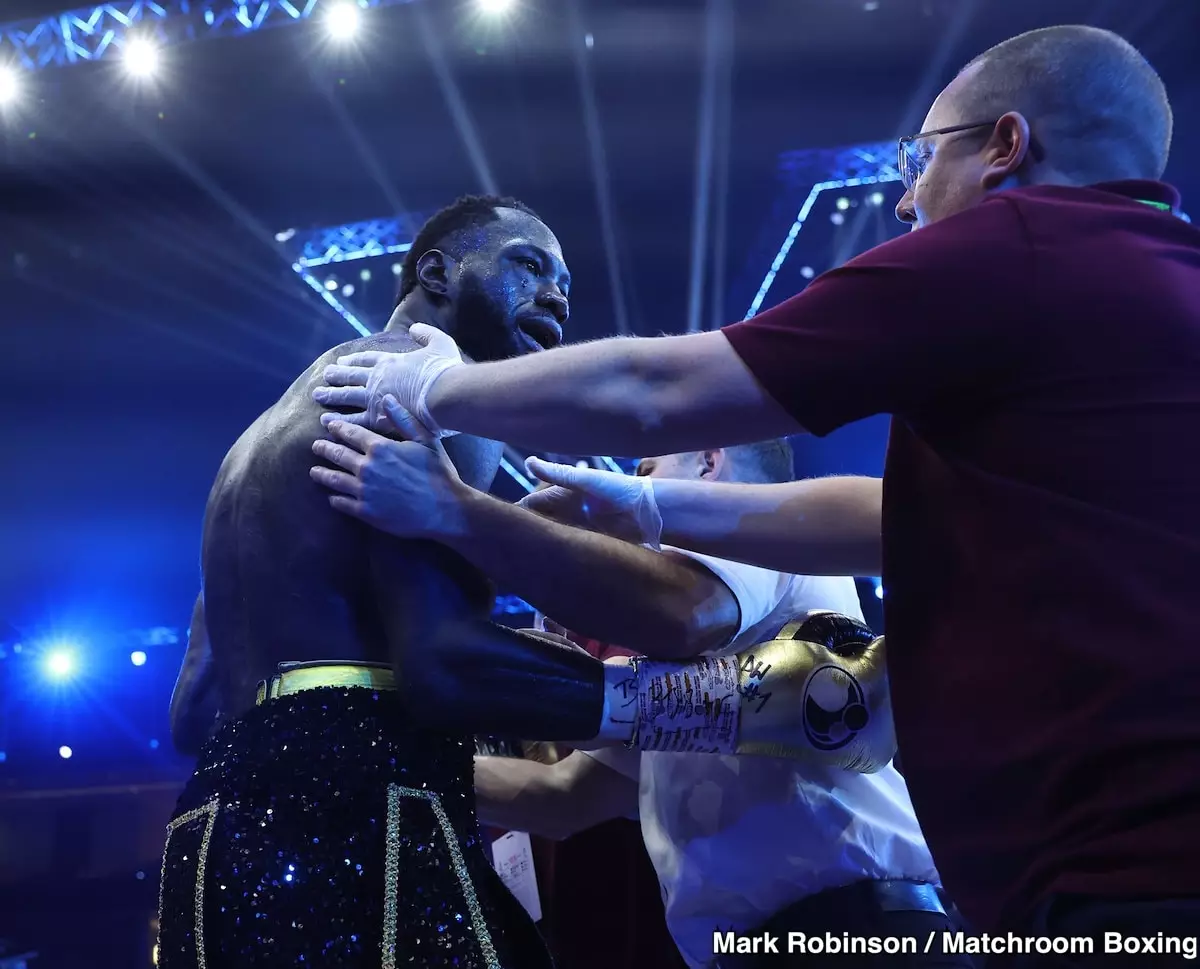The boxing world is once again buzzing about Deontay Wilder as he prepares to step into the ring against Tyrrell Herndon on June 27. This match, however, is far from a glamorous return spotlight; it’s set to take place in Wichita, Kansas, rather than prestigious venues like Las Vegas or Madison Square Garden. To the casual observer, this may seem like an unusual choice for a former heavyweight champion. Yet, for Wilder (43-4-1, 42 KOs), it represents an opportunity to string together a win after a tough stretch—his fans must be hoping for a phoenix-like comeback.
Wilder’s last few outings have been less than stellar. After experiencing devastating defeats against Joseph Parker and Zhilei Zhang, where he was not just beaten but made to look almost amateurish, a bout against a 37-year-old journeyman like Herndon is an odd choice, to say the least. Some might say this is a savvy tactical maneuver; others might view it as a sign of desperation as he attempts to reignite the fire that once made him a titleholder.
A Struggle for Redemption
The notion that Wilder is embarking on a journey to reclaim his “legacy” feels overinflated, particularly when considering the nature of his opponent. Herndon, whose record of 24-5 (15 KOs) indicates he’s seen his fair share of defeats—including a lackluster performance that ended in a split decision—does not evoke the type of fear that former champions typically strike in their foes. Instead, this match serves more as an opportunity for Wilder to shake off the ring rust and accumulate a victory than a significant step toward regaining his former glory.
Promoters Nelson Lopez and Joshua Chasse seem to be leaning into the optimism that once surrounded Wilder. Chasse’s assertion that this marks a “legacy reloaded” moment borders on delusional. While the heavyweight division can be unpredictable, the idea that facing an opponent with a dubious record will elevate Wilder’s standing in the eyes of boxing fans and critics alike appears misguided at best.
Is Power Enough?
Wilder’s reputation as one of boxing’s hardest hitters remains intact. However, sheer power often isn’t enough to sustain a champion’s legacy, especially when the fear that once accompanied his punches seems to have dissipated. Power can win fights, but it can’t mask the specter of decline. An athlete can have undeniable skill, yet if they’ve been in decline for years, merely enhancing their output against lesser opponents does little to stave off the doubt that has begun to surround their career.
The heavy defeats Wilder has endured against Tyson Fury not only showcased vulnerabilities in his technique but also laid bare the cracks in his mental fortitude. The trilogy with Fury was nothing short of a brutal theater; Wilder didn’t just lose—the lopsided nature of the outcomes left viewers questioning his ability to withstand the physical and psychological demands of elite boxing. The thrill of those high-drama nights has given way to an ambiguous present, where this Wichita bout feels more like an exercise in damage control rather than a legitimate comeback.
Boxing’s Complex Nature
The intricacies of boxing involve not just physical competence but a strategic mental game, and Wilder may find himself in a strange limbo. While he could, theoretically, disassemble Herndon in a single round, the implications of that victory might be negligible for the broader context of his career. Would a quick knockout serve as a tale of reclamation, or would it act merely as a stopgap, one that fails to restore him in the eyes of boxing enthusiasts? At this stage, maintaining activity is critical; Wilder may be doing what he must to stay relevant, cashing in a check rather than reigniting the flame of a championship pursuit.
His journey against Herndon may reestablish a win column, but it’s crucial to temper expectations. Such bouts can sometimes serve as ‘confidence boosters,’ but they don’t come close to addressing the underlying cadence needed for a true return journey in the sport. While fans of boxing have always cherished the idea of comebacks, the narrative Wilder finds himself in today is less about redemption and more about sustaining his name in the conversation – even if it’s just a whisper in a bingo hall in Kansas.

